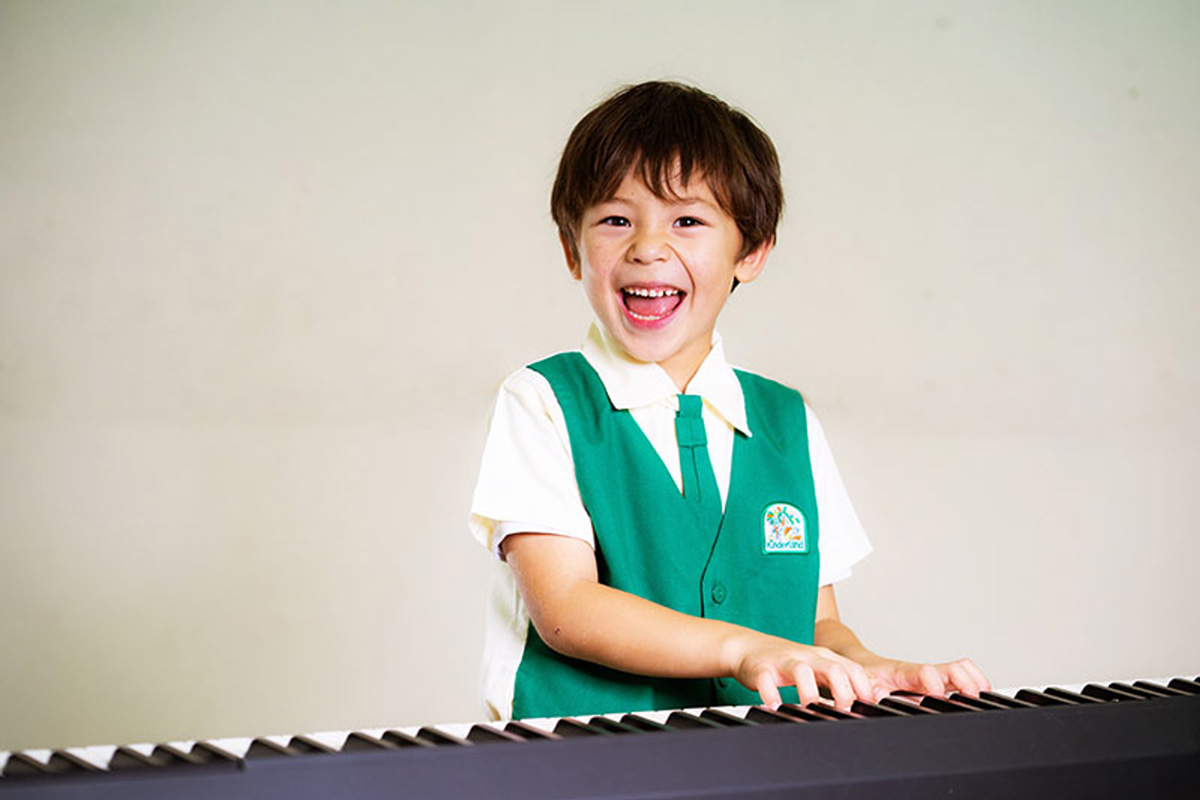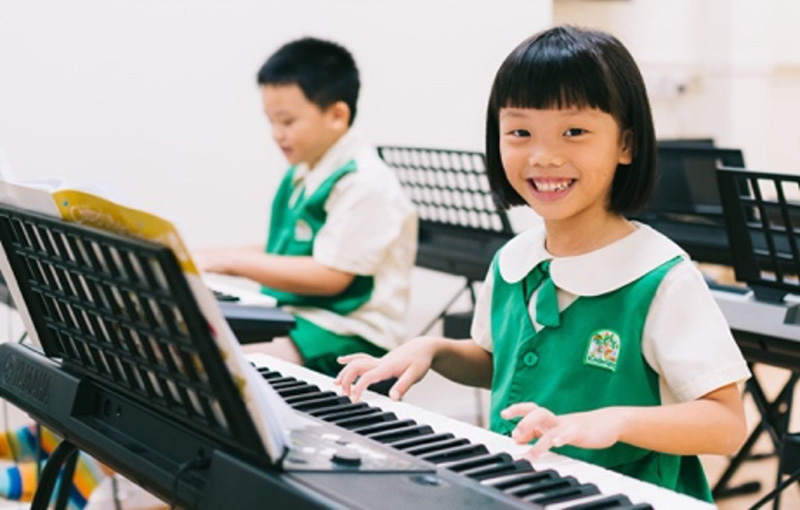
Kinderland first started as Yamaha Kindergarten over 40 years ago before going through a rebranding in 1985. We are a firm believer that there are bountiful benefits of an early childhood music education that is enriched in music. That is why we pioneered the introduction of the keyboard music curriculum, strongly advocating a holistic music-infused curriculum.
Music is a key component of a child’s early years of development. That brought the birth of Kinderland’s signature Children’s Music Programme (CMP).
Kinderland’s CMP is a research-based formal music course developed for young children. Kinderland children are taught keyboard music playing, solfege singing, rhythm, harmony, ensemble, rudiments of music theory, and music appreciation by professional music teachers.
How would children of tender age benefit from CMP?
Dr Carol Loy, Kinderland’s Director of Curriculum & Professional Development, sheds light on the key benefits of early adoption of music.
Music Supports Academic Growth
The importance of music in language literacy development is a factor that Kinderland recognizes and implements in its curriculum through the CMP.
Research has shown that music-making improves test scores regardless of socioeconomic background. Children get higher marks in standardized tests and fare better in reading proficiency examinations than those without music involvement.
Early exposure to beats and rhythms also aids children in visualizing topics in math, such as multiplication, division, patterns, and fractions. Vibrations from drumming also provide children with an elementary understanding of harmonic and sympathetic vibrations. This learning could prepare them for subjects such as physics.
Music Supports Physical Growth
Picking up an instrument can help encourage the development of a child. Their fine and gross motor skills, coordination, ambidexterity, and a greater sense of rhythm are developed.
Younger children express themselves to different beats with music. They actively move parts of their body, such as their arms and feet, while learning to stay on beat, providing them with a well-rounded full-body workout too!
Music Teaches Social Skills
An early introduction to music can also teach young children to communicate with their peers. Kinderland’s CMP encourages and improves children’s ability to express feelings better, cultivating an appreciation for teamwork.
This includes cooperating and compromising on who plays which instrument and working collectively to create one melody. These classes require peer interaction and teamwork. When a child is offbeat or rhythm, they will have to alter their playing to suit the others. Performances also teach children patience and how to be considerate and supportive of others.

Little ones get to express themselves through music.
Music Introduces Multiculturalism
Music is a universal language. A great way for young children to be introduced to other countries and societies.
Each culture has unique instruments and traditions, often portrayed vividly in its music. Young children will understand and appreciate diversity by learning about and playing various instruments. This, in turn, helps develop open-mindedness about societies and traditions beyond those they are familiar with.
Music Builds Self-Esteem, Confidence, Discipline, and Perseverance
When picking up music at a young age, young children are introduced to constructive criticism and how to take it positively. This helps increase their self-esteem and spurs them to be thoughtful about their actions and how to improve themselves.
Turning negative feedback into a positive learning experience will also help build self-confidence and is a useful trait to hold on to as they grow. Learning in a group setting teaches young children that there is always room for improvement. It prolongs their engagement with continuous practice and progress, finally gaining success that promotes confidence building.
Research shows that exposure to the elements of music or taking up an instrument increases the holistic development of young children. Parents also play an important role by being involved and engaged in their child’s learning process. This enables our children to get the most out of the experience.
We cannot just leave them to their own devices and expect a diamond to come out of the rough. Constant support and encouragement are key to the child’s learning success!
